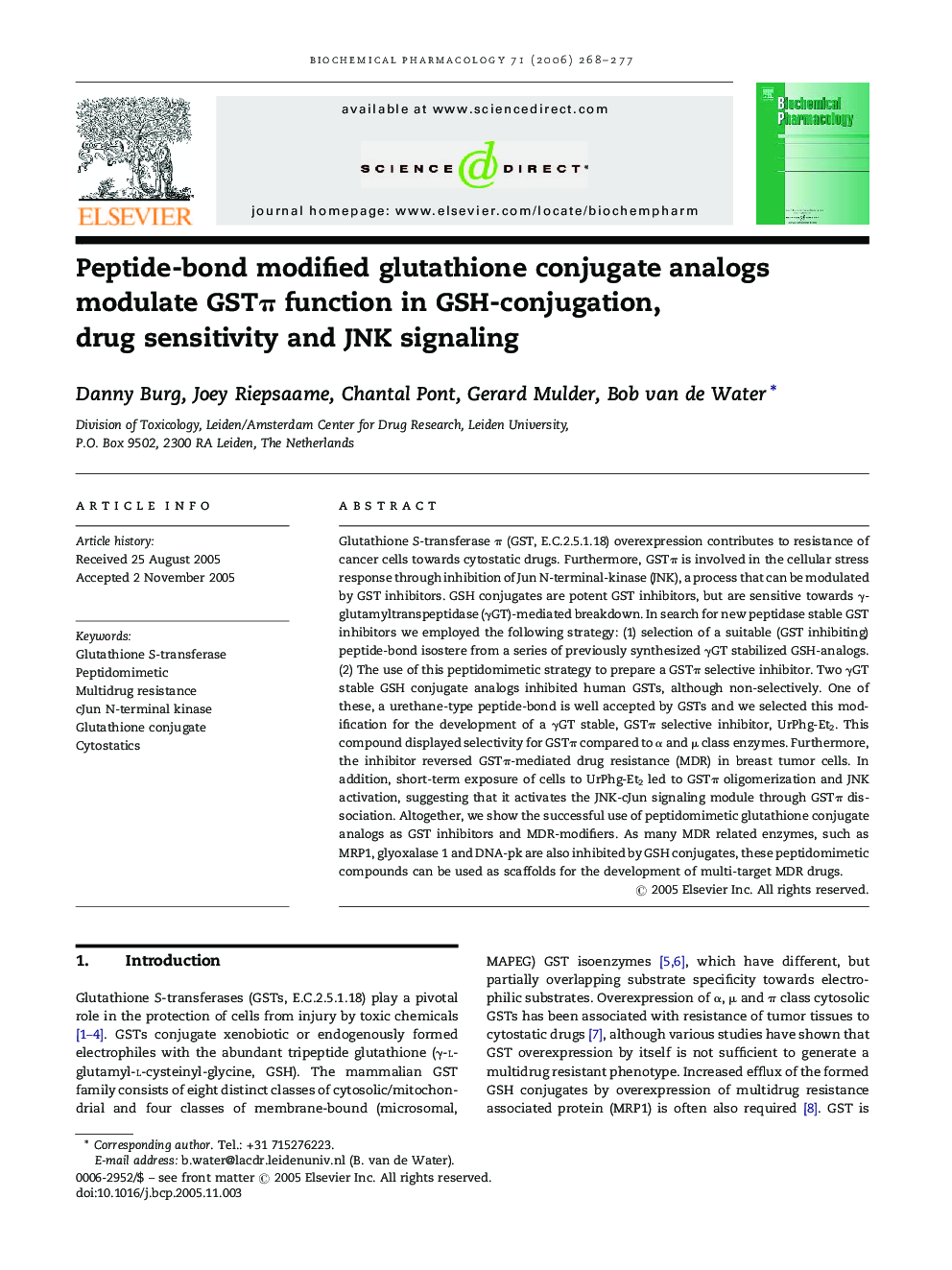| Article ID | Journal | Published Year | Pages | File Type |
|---|---|---|---|---|
| 2515275 | Biochemical Pharmacology | 2006 | 10 Pages |
Glutathione S-transferase π (GST, E.C.2.5.1.18) overexpression contributes to resistance of cancer cells towards cytostatic drugs. Furthermore, GSTπ is involved in the cellular stress response through inhibition of Jun N-terminal-kinase (JNK), a process that can be modulated by GST inhibitors. GSH conjugates are potent GST inhibitors, but are sensitive towards γ-glutamyltranspeptidase (γGT)-mediated breakdown. In search for new peptidase stable GST inhibitors we employed the following strategy: (1) selection of a suitable (GST inhibiting) peptide-bond isostere from a series of previously synthesized γGT stabilized GSH-analogs. (2) The use of this peptidomimetic strategy to prepare a GSTπ selective inhibitor. Two γGT stable GSH conjugate analogs inhibited human GSTs, although non-selectively. One of these, a urethane-type peptide-bond is well accepted by GSTs and we selected this modification for the development of a γGT stable, GSTπ selective inhibitor, UrPhg-Et2. This compound displayed selectivity for GSTπ compared to α and μ class enzymes. Furthermore, the inhibitor reversed GSTπ-mediated drug resistance (MDR) in breast tumor cells. In addition, short-term exposure of cells to UrPhg-Et2 led to GSTπ oligomerization and JNK activation, suggesting that it activates the JNK-cJun signaling module through GSTπ dissociation. Altogether, we show the successful use of peptidomimetic glutathione conjugate analogs as GST inhibitors and MDR-modifiers. As many MDR related enzymes, such as MRP1, glyoxalase 1 and DNA-pk are also inhibited by GSH conjugates, these peptidomimetic compounds can be used as scaffolds for the development of multi-target MDR drugs.
